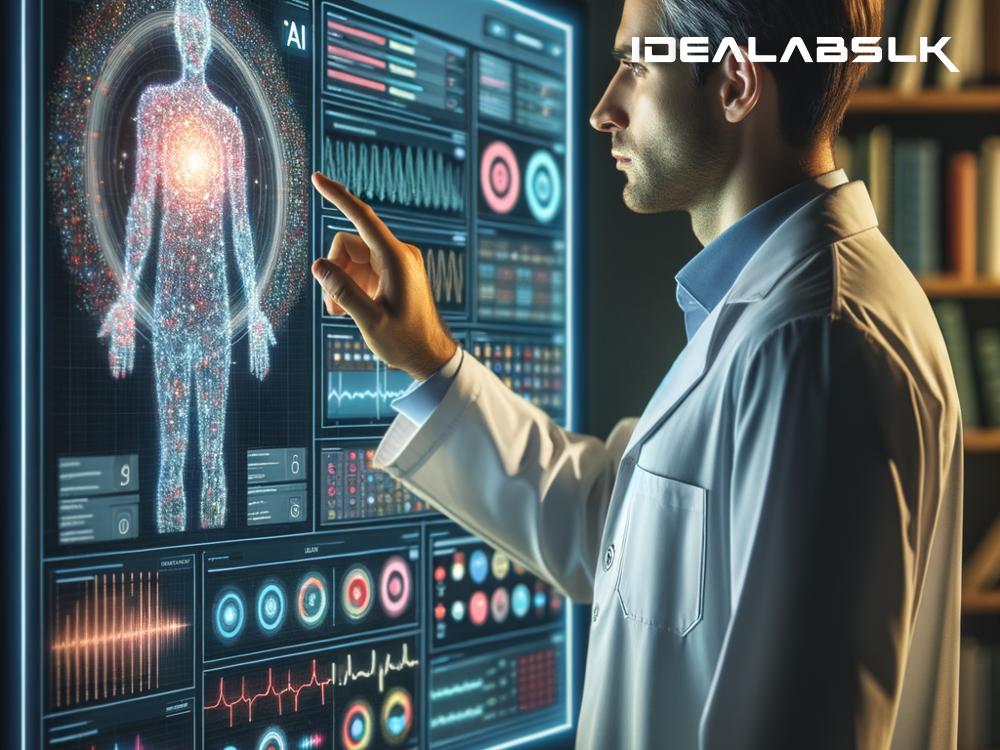Title: The Role of Technology in Preventing Overdiagnosis: How AI Can Help Doctors Make Better Decisions
In the ever-evolving world of medicine, one of the trickiest lines to walk is that between diagnosis and overdiagnosis. While diagnosis identifies a real problem needing treatment, overdiagnosis happens when conditions are identified that might never actually cause harm. This can lead to unnecessary worry and possibly even treatments that do more harm than good. But there's a beacon of hope on this challenging path — technology, specifically Artificial Intelligence (AI), is stepping up to assist doctors in making more precise decisions. Let's dive into how technology is playing a crucial role in preventing overdiagnosis and consequently transforming patient care for the better.
Understanding Overdiagnosis
First up, what exactly is overdiagnosis? Imagine you went to the doctor for a routine check-up, and they found something "abnormal" that might never cause any symptoms or problems in your life. Yet, based on this finding, you might end up receiving treatments, potentially experiencing unnecessary side effects. That's overdiagnosis in a nutshell. It's a more common problem than most realize, especially with the advent of advanced screening technologies that detect health conditions at very early stages, many of which might not actually impact a person's health if left alone.
Where AI Comes In
Enter Artificial Intelligence. AI in healthcare isn't about replacing doctors but empowering them with tools to make better, more informed decisions. Here's how AI is helping prevent the issue of overdiagnosis:
Enhanced Diagnostic Accuracy
AI algorithms can analyze medical images, like X-rays and MRIs, with a detail and consistency beyond human capability. They're trained on vast databases of images, learning to spot the subtlest signs of real problems, distinguishing them from benign anomalies. This means they can help flag genuine issues for further investigation while reassuring when something shouldn't be a cause for concern.
Predictive Analytics
AI doesn't just work in the realm of what’s already there but also predicts what might happen. By analyzing patterns in vast amounts of patient data, AI can forecast the likelihood of a condition becoming problematic. This helps doctors make decisions about whether active treatment is necessary or if a watch-and-wait approach might be safer and more appropriate.
Personalized Medicine
Every individual's health journey is unique, and AI excels at personalizing medical advice. By taking into account a person's genetic makeup, lifestyle, and even environmental factors, AI tools can predict the potential risks more accurately for that individual, suggesting preventative measures or treatments that are precisely tailored, thus avoiding the one-size-fits-all approach that can lead to overdiagnosis.
Real-world Impact
A study incorporating AI in screening mammography showed a reduction in false positives — essentially instances that might have led to overdiagnosis. Similarly, AI-assisted tools in prostate cancer screening are helping distinguish aggressive from benign conditions, ensuring that patients receive treatment aligned with the real threat level of their condition.
Doctor-Patient Dialogue
An indirect but significant impact of AI is how it can influence the conversation between doctors and patients. Equipped with AI-generated insights, healthcare providers can offer more nuanced advice, explaining the risks and benefits of pursuing further testing or treatment. This fosters a better understanding for patients, who can then make more informed decisions about their care.
Challenges and Considerations
It's important to note that the integration of AI in healthcare is not without its challenges. There are issues of privacy, data security, and the need for robust, unbiased datasets to train AI models. Moreover, the technology is only as good as the data it learns from — highlighting the need for continuous updates and monitoring to ensure accuracy and relevance in a rapidly advancing medical landscape.
The Road Ahead
As technology, particularly AI, becomes more intertwined with healthcare, the potential to reduce overdiagnosis is tremendous. By enhancing the precision of diagnoses, personalizing medical advice, and improving the quality of doctor-patient conversations, AI is setting the stage for a future where treatment is as accurate and individualized as possible, minimizing the risks associated with overdiagnosis.
In this journey towards better healthcare outcomes, the role of technology is undeniable. It's not about technology taking over but about it lending a helpful hand, making the path clearer for doctors as they navigate the complex decision-making process of diagnosis. With continued advancements and thoughtful integration, the hope is that overdiagnosis can be significantly curbed, leading to healthcare that is not just more advanced, but also more humane and precise.
By intelligently integrating AI into healthcare, we’re stepping into an era where medical care is not just reactive but predictive and personalized, steering clear of the pitfalls of overdiagnosis and towards a healthier future for all.

